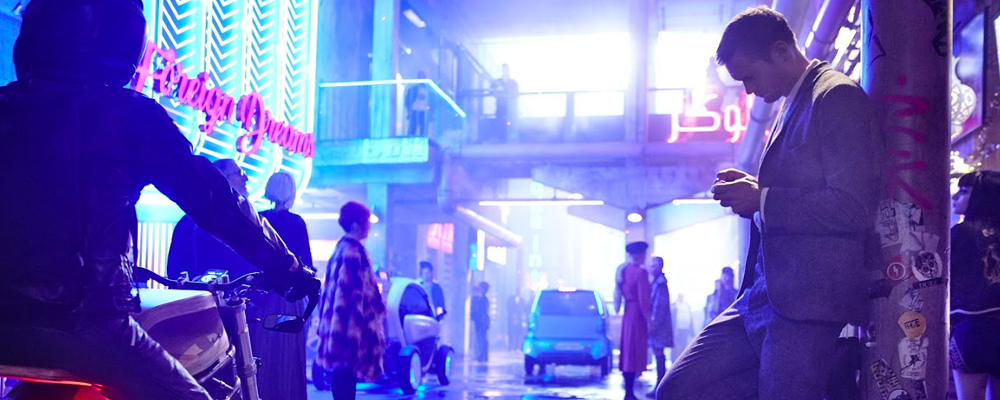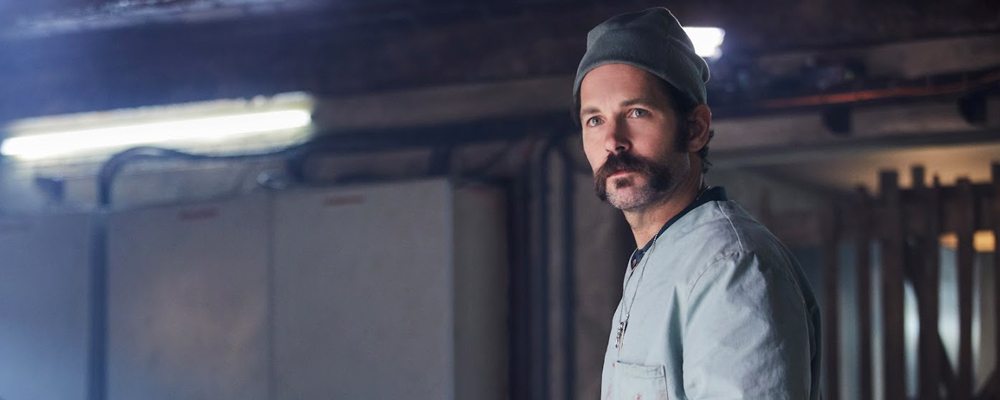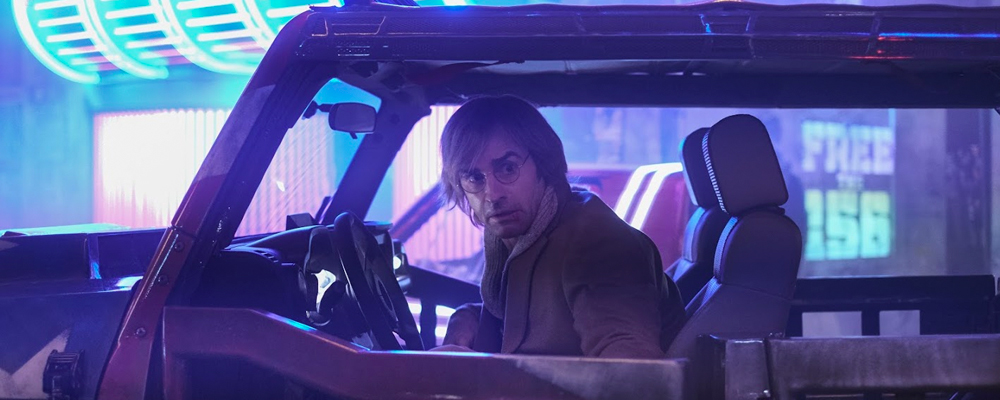‘Mute’ Is a Haunting Vision of the Future
Aaron Berke
Netflix’s new dystopian film “Mute,” written and directed by visionary filmmaker Duncan Jones, presents a uniquely quiet tale about a man’s search for his lost love. The quest itself is simple, but the backdrop reveals a complex world filled with Jones’ imaginative interpretations of society’s vices. Alexander Skarsgard plays the mute man at the center, and his inability to speak allows the viewer an unusual viewpoint into the filmmaker’s world. It’s a perspective that’s unbiased and allows viewers nearly total autonomy interpreting “Mute” for themselves.
The film begins with young Leo losing his ability to speak in a boating accident. 30 years later, Leo (Skarsgard) is living in a futuristic Berlin, where he’s working as a strip club bartender. The love of Leo’s life is a blue-haired waitress named Naadiyah (Seyneb Saleh), who works at the strip club with him. One day Naadiyah gives Leo a present; a 21st century cell phone, which the technophobic Leo reluctantly acclimates to. Soon after, Naadiyah vanishes without a trace. With nothing but the cell phone and a note pad as his clues, Leo begins a hunt through Berlin, scouring futuristic brothels, illegal hacking dens, and apartment complexes, desperate to find Naadiyah. Meanwhile, a loud-mouthed surgeon, Cactus Bill (Paul Rudd), works for the local crime bosses with the promise of receiving passports for him and his daughter, Josie. Bill went AWOL from the military, and he’s currently laying low with fellow surgeon and military vet, Duck (Justin Theroux), determined to leave the country at any cost.
The most immediately fascinating aspect of “Mute” is its futuristic society, and Leo’s mute status allows us a unique perspective into that world. Because he can’t speak, there’s no dialogue to distract us from the innate wonders and horrors that the new Berlin presents. Leo is quite literally the eyes of the audience, and through him we are witness to a world that’s increasingly ruled by crime and sex. Brothels are now filled with sex robots that are largely gender neutral and cater to deviant fetishes. One particularly memorable sequence features Leo’s quest taking him to the apartment of Oswald, a fetish-heavy patron played by Dominic Monaghan in Japanese makeup and a kimono. On Oswald’s bed are two male sex robots with ball gags and large metallic dildos paused in mid-thrust. The bizarre scene is just one of many that Leo stumbles into, painting a picture of a future where humanity’s depraved instincts have become all-consuming.
Skarsgard, deprived of the ability to speak, is forced to emote solely through his eyes and facial expressions. It’s the best performance of Skarsgard’s career, and the haunting loss of Naadirah is constantly written on his every feature. Jones’ decision to feature a mute character as the protagonist is a genius counterbalance against his mechanized future. With deviant sex, cloning technology, virtual hacking and video games the prominent forces in Jones’ new society, a mute man suddenly appears more human by comparison. This world is a hot and wild one that glosses over human nuance and replaces it with unfeeling gratification. Leo’s pronounced flaw makes him seem like the only real person left.
It’s no accident that the film’s primary antagonist is a man who can’t stop talking. Rudd gets a truly meaty role as Bill, a relentlessly snarky character who’s rude to everyone and voices his opinion about absolutely everything. The role caters to Rudd’s comedic talents, while also granting him a villainous quality unlike any he’s ever portrayed. Rudd often steals the show when he’s on screen, sometimes making us forget completely about Leo’s quest. This too is no accident. In a world that caters to demands, Bill is the most demanding and the most adamant about what he wants. But Bill’s words are simply white noise, deliberately distracting from the silent purity of Leo’s unrelenting quest.
Theroux delivers a creepy turn as Duck, a character who contrasts Bill’s loudmouth ferocity with quiet perversion. Duck is more timid than Bill, but ultimately reveals himself to be the most disturbing character in the film. Theroux gets his moment to shine in the final act, when the mystery of Naadirah’s disappearance takes a sharp twist. If Leo is quiet purity and Bill is loud-mouthed farce, then Duck certainly is silent madness. Interestingly, the only thing in the film that feels familiar is the plot itself, which takes the usual turns of a mystery-thriller. The third act in particular hits suspenseful notes that play into the formula of a more typical film. This isn’t really a flaw. The suspense works quite well, it just draws more attention to itself than perhaps it should, because the rest of the film is operating on a much quieter frequency.
“Mute” is a fascinating inquiry into mankind’s depraved future, using a missing person narrative to mine different aspects of society. Leo, Bill and Duck represent three different points on Jones’ triangle of human experience, and they are each played wonderfully by Skarsgard, Rudd and Theroux, respectively. Ultimately this is a director’s film, and “Mute” marks Jones’ most significant authorial effort since “Source Code.” With a moody setting, fascinating perspective changes, and a hauntingly atmospheric score by Clint Mansell, “Mute” presents a startlingly original portrait of human relationships in the near future.
“Mute” premieres Feb. 23 on Netflix.



